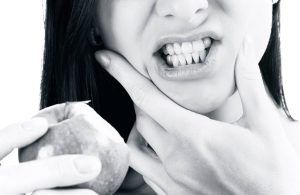
6 COMMON CAUSES OF TMJ FLARE-UPS
Do you frequently have jaw pain in the morning or notice a popping or clicking sound as you chew? Does it hurt to open your mouth wide? Do you experience mysterious neck, shoulder, and back discomfort or migraines?
You might have temporomandibular joint (TMJ) disorder if you answered “yes” to any of these questions (TMD). TMD is more frequent than you might imagine. According to the Academy of General Dentistry, more than 10 million Americans have TMD.
The temporomandibular joint experiences persistent stress as a result of TMD, often known as TMJ. Misaligned teeth or an unbalanced set of jaw muscles are the usual culprits in this increased tension. The ligaments in the area may become stretched out due to ongoing stress on the TMJ. To make up for the strained ligaments, the jaw muscles may also shorten or lengthen.
When a TMJ condition patient experiences a severe TMJ pain flare-up, the problem frequently returns after a few days and tends to come and go. While some preventative actions can help lessen the amount of discomfort, home remedies can be utilized to relieve mild to moderate discomfort. For jaw function and a better quality of life, people with more severe cases of ongoing pain or swelling may require professional treatment.
Recognizing TMJ Dysfunction
Just in front of each ear is the temporomandibular joint, which opens and closes the jaw. Patients may be diagnosed with TMJ if they experience frequent discomfort, swelling, stiffness, or popping. How do you get TMJ? There are some causes, including:
- Improper development or creation of joints
- Choices of the way of life
- Injury to the jaw or nearby area
- Difficulties with arthritis
- Routinely clenching and grinding one’s teeth
- A dental expert’s evaluation is necessary for a precise diagnosis.

Excruciating tmj pain
What Causes TMJ To Flare Up?
You can prevent TMJ flare-ups or reduce their severity and duration by identifying triggers and dealing with them.
Stress
Even when you’re awake, stress might cause you to clench your jaw and grind your teeth (bruxism). Acute TMD is made worse by the increased stress and pressure on the TMJ and face muscles.
According to hormone research, TMJ discomfort may result from low levels of natural estrogen. Birth control pills’ release of synthetic estrogens and the resulting hormonal changes may also be at play.
Hard And Chewy Foods
Gum chewing, ice-crunching, and eating items that are firm or chewy and put stress on the TMJ, like bagels, entire apples, gummy sweets, and nuts, can all cause an attack.
Dehydration
Dehydration makes joint lubrication less effective, which causes an outbreak.
Poor posture can cause your lower jaw to protrude forward and cause your spine to be out of alignment, putting too much strain on specific face muscles and the tissues that support them, including the TMJ.
The Neck Muscles
The muscles that regulate breathing, chewing, talking, biting, and head position are closely related to the bones in your neck. TMJ/TMD discomfort is brought on by the recruitment of other muscles by strained and fatigued neck muscles, which creates an imbalance.
Medication
Some drugs may cause you to clench and grind your teeth. You shouldn’t stop taking them, but it would be a good idea to discuss them with an expert in orofacial discomfort.
Low Vitamin Levels
- Muscle soreness may be brought on by vitamin D deficiency.
- Average Flare-Up Duration
- Individual flare-ups differ according to the underlying reason or trigger. How long a flare-up lasts can also be influenced by whether a doctor is actively addressing the TMJ problem. The majority of flare-ups last two days to a few weeks.
How Long Does TMJ Last?
A TMJ flare-up may cause one or more of the following symptoms:
- Continual or intermittent jaw and surrounding area pain
- Headaches
- Earaches Loud popping or clicking sounds are made when opening or closing the mouth
- Pain that travels down the shoulders or neck
- Swelling of the face Limited jaw movement
- Fixed jaw
Treatment For TMJ Flare-Ups
While dealing with a flare-up may seem difficult, it’s simpler than you may imagine. Splint Therapy is the most effective research-based long-term therapy option for TMD, although you can take steps to deal with a flare-up on your own, such as:
- Avoid meals that make your TMJ work too hard to chew. Don’t chew gum.
- Remain hydrated. Eat foods with high water content, such as cucumber, tomatoes, cantaloupe, and cauliflower, and drink water. Prevent caffeine.
- Simple jaw stretches and relaxation exercises might help you release stress and/or improve your posture.
- To prevent stress on your jaw, sleep on your back. Make use of a pillow that can adequately support your neck and head.
- Try myofascial massage therapy to relieve stress and tightness and relax tense muscles.
- Although it’s easier said than done, reducing stress can help treat flare-ups and even work to prevent them from happening in the first place. Become more adept at relaxation techniques,g stretching, meditation, and deep breathing. Regular exercise might help you relax.
- Apply warm compress pads to your neck, temples, and face muscles before engaging in the suggested stretches and exercises to keep your TMJ from becoming rigid. Apply a cold compress after stretching.
- Physical therapy that manipulates the muscles around the TMJ and the jaw can ease discomfort and stress.
- A qualified acupuncturist who locates trigger points and stiffness can use acupuncture to reduce tension and improve blood flow to the affected area.
The last thing you want to do is exacerbate your TMJ disease. Start by giving up these behaviors that might worsen TMJ symptoms while also being bad for your oral health.
- Using your teeth as tools
Your teeth are not the appropriate instruments for the job if you need to open a difficult package or bottle or if you have a fingernail that needs to be filed down.
The force required for these tasks exerts strain on the jaw joint and muscles, exacerbating TMJ symptoms. Find the scissors, bottle opener, or nail file, and you might avoid some misery.
- Nervous chewing
Do you chew on the closest pencil or pen when you’re bored, anxious, or stressed?
Any unnecessary chewing strains the jaw and might make TMJ symptoms worse. Sugarless gum is frequently chosen by anxious chewers, but if you have TMJ disease, that is not a good idea. Instead, attempt sucking on sugar-free mints.
- Dozing off on your stomach
Maintain proper alignment of your neck, head, and back as you sleep to prevent aggravating TMJ problems. Your jaw is subjected to additional stress when you sleep on your stomach. Instead, try resting on your back with a supple, firm cushion supporting your head.
- Taking large bites
Large bites can cause the jaw joint to become overextended, adding to the surrounding muscles and tendons’ TMJ pain. To assist in stopping the progression of TMJ symptoms, cut your food into smaller bites.
Is TMJ life-threatening? TMJ problem is not life-threatening, but if left untreated, they can cause substantial strain and discomfort. Even the development of conditions like anxiety and depression can be influenced by chronic pain. If you are seeking TMJ sleep therapy in Richland, then come into our center for sleep apnea and TMJ to speak to our doctor about TMJ treatment in Richland.











